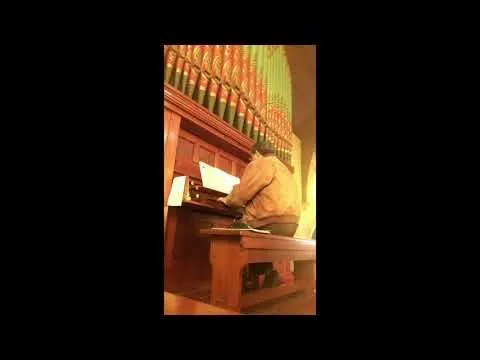This week's presentation is a rather intimidate, liturgical piece by Giuseppe Paolucci called Elevazione. This genre is typical in the Italian organ school and means ‘Elevation’ and is played during the major Elevation of the sacred Host at the consecration, the most sacred part of the Mass.
There is very little biographical detail on Paolucci. He was born in 1726 and died in 1776. He studies with the Franciscan monk, Padre Giovanni Battista Martini at the Frari church in Venice.
The Italian organs were generally quite modest in nature, invariably having one manual with pedal pulldowns. The manual compass would have 45 notes with a short first octave CC, DD, EE,FF,GG,AA,Bb,BB – c. There may be an octave or more pedals which pulled down the lowest manual notes. The Elevazione invariably called upon a specific registration of the Principale with another, unusual unison stop called the Voce Umana. This is not to be confused with the English Vox Humana or the French Voix Humaine. Rather, it is a flue stop or principal scale but tuned sharp to beat with the Principale, thereby producing a shimmery tone.
The organ upon which I play, an English organ from 1882, unfortunately does not have this ‘magical’ stop (nor a tremulant which is not always the best solution). Rather, I have had to compromise by using what my instrument has: a (gentle) Open Diapason and a Stopped Diapason.
